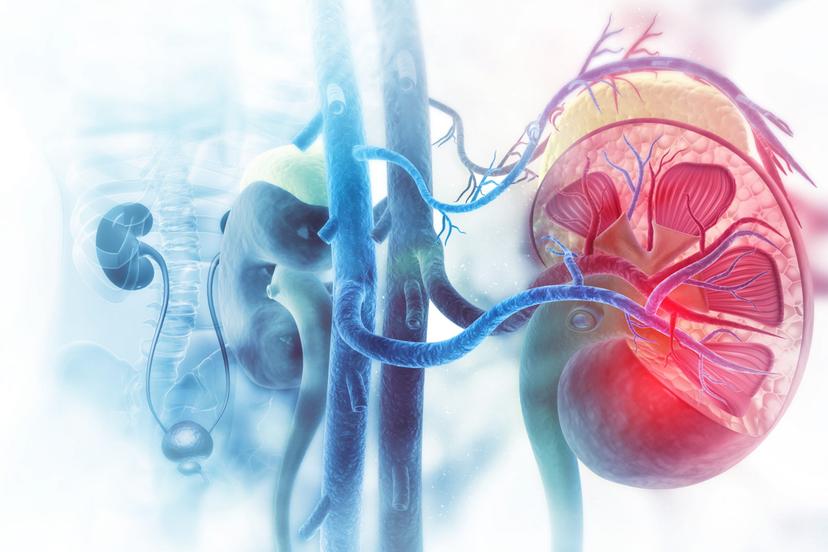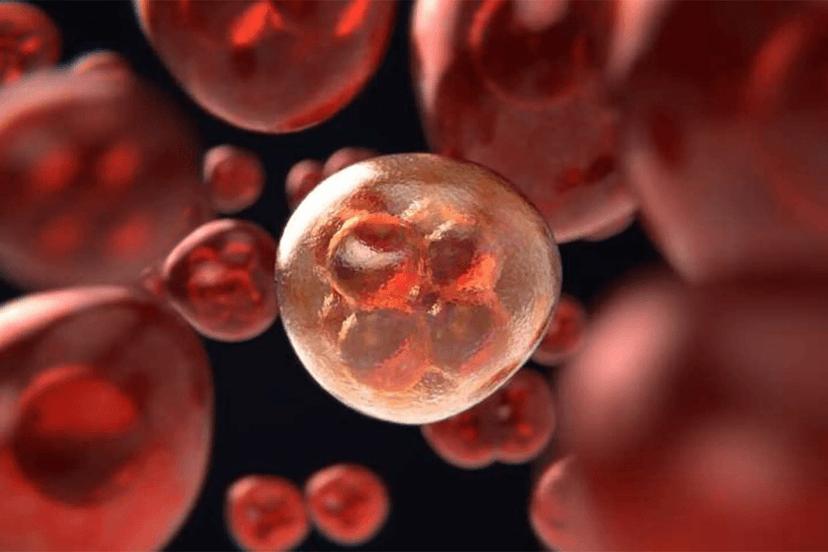
Kidney Cancer Treatment Strategies in the UK: A Guide for Patients from Russia
01 Aug, 2024
 Healthtrip Team
Healthtrip TeamKidney cancer presents a significant health challenge, and navigating treatment options can be daunting, especially if you're seeking care abroad. For Russian patients considering treatment in the UK, it's crucial to understand the strategies available and the leading healthcare facilities that can provide top-notch care. This guide aims to offer a comprehensive overview of kidney cancer treatment strategies in the UK, focusing on the most effective approaches, renowned hospitals, and what you need to know before making a decision.
Most popular procedures in India
Kidney Cancer
Kidney cancer, also known as renal cancer, typically begins in the kidneys and can spread to other parts of the body if not treated promptly. The two main types are renal cell carcinoma (RCC) and transitional cell carcinoma (TCC). Early detection and a tailored treatment plan are vital for improving outcomes.
Wellness Treatments
Give yourself the time to relax
Lowest Prices Guaranteed!

Lowest Prices Guaranteed!
1. Surgical Treatments
A. Partial Nephrectomy: This procedure involves removing the cancerous tumor along with a small portion of the surrounding kidney tissue. It's generally recommended for early-stage kidney cancers, aiming to preserve as much of the kidney as possible. The benefits include maintaining kidney function and a generally quicker recovery with less postoperative pain.
B. Radical Nephrectomy: For more advanced or larger tumors, radical nephrectomy is often necessary. This surgery entails removing the entire kidney along with surrounding tissues and possibly nearby lymph nodes. It is effective for thoroughly removing cancerous tissues but usually involves a longer recovery period and more postoperative pain.
C. Laparoscopic Surgery: This minimally invasive technique involves making small incisions and using a camera and specialized instruments to remove the tumor. Laparoscopic surgery can be used for both partial and radical nephrectomies and offers benefits such as reduced pain, shorter hospital stays, and quicker recovery times compared to traditional open surgery.
The selection of surgical treatment depends on the tumor's stage, location, and the patient’s overall health. Consulting with a specialized oncologist or urologist is crucial to determine the best surgical option tailored to the individual’s condition.
2. Targeted Therapy
1. Tyrosine Kinase Inhibitors (TKIs): These medications target specific proteins involved in the growth and spread of cancer cells. TKIs work by blocking the signals that promote cancer cell proliferation. Common TKIs for kidney cancer include sunitinib, pazopanib, and axitinib. These drugs are often used for advanced or metastatic kidney cancer and can help manage the disease by slowing its progression.
2. mTOR Inhibitors: mTOR (mammalian target of rapamycin) inhibitors, such as everolimus and temsirolimus, work by targeting a protein that helps cancer cells grow and divide. These drugs are typically used when kidney cancer has progressed despite other treatments. They can be effective in slowing the growth of cancer and are used in various stages of the disease.
3. Vascular Endothelial Growth Factor (VEGF) Inhibitors: These drugs block the action of VEGF, a protein that helps tumors form new blood vessels to sustain their growth. By inhibiting VEGF, these medications can starve the tumor of necessary nutrients and slow its growth. Bevacizumab is an example of a VEGF inhibitor used in treating kidney cancer.
4. Combination Therapies: Sometimes, targeted therapies are used in combination with each other or with other treatments like immunotherapy. Combining therapies can enhance the effectiveness of treatment and address different aspects of cancer growth.
Targeted therapies are designed to specifically attack cancer cells while minimizing damage to normal cells. This targeted approach often results in fewer side effects compared to traditional chemotherapy. They can be particularly effective for advanced or metastatic kidney cancer and offer new options for patients who have not responded well to other treatments. The decision to use targeted therapy depends on various factors, including the type and stage of kidney cancer, previous treatments, and the patient’s overall health. Oncologists will evaluate these factors to recommend the most appropriate targeted therapy for each individual.
3. Immunotherapy
1. Checkpoint Inhibitors: These drugs work by blocking proteins that inhibit the immune system's ability to recognize and attack cancer cells. For kidney cancer, checkpoint inhibitors such as nivolumab and pembrolizumab are commonly used. They help enhance the body's natural immune response against cancer cells, often resulting in significant benefits for patients with advanced kidney cancer. This treatment can lead to durable responses and is increasingly used in combination with other therapies.
2. Interleukin-2 (IL-2) Therapy: Interleukin-2 is a type of immunotherapy that boosts the body's immune response by stimulating T cells to fight cancer. High-dose IL-2 can be effective for some patients with advanced kidney cancer, though it can be associated with significant side effects. It is usually considered when other treatments have not been effective.
3. CAR-T Cell Therapy: Chimeric Antigen Receptor T-cell (CAR-T) therapy involves modifying a patient’s T cells to better target and attack cancer cells. While still primarily in the experimental stages for kidney cancer, CAR-T therapy holds promise for patients with advanced or resistant forms of the disease. It represents a cutting-edge approach to harnessing the immune system's power against cancer.
4. Cytokine Therapy: This treatment involves using cytokines, which are proteins that help regulate the immune system. Cytokine therapy, including treatments with interferon-alpha, can stimulate the immune system to fight cancer cells and is sometimes used in combination with other therapies to enhance their effectiveness.
Immunotherapy can offer significant advantages, including the potential for long-lasting responses and fewer side effects compared to traditional treatments like chemotherapy. It leverages the body's own immune system to target and destroy cancer cells, which can be particularly beneficial for advanced kidney cancer patients who may not have responded well to other treatments. The selection of immunotherapy depends on various factors, such as the type and stage of kidney cancer, previous treatments, and the patient’s overall health. Oncologists will assess these factors to determine the most appropriate immunotherapy options and may recommend participation in clinical trials for access to the latest treatments.
4. Chemotherapy
1. Traditional Chemotherapy: Chemotherapy uses drugs to kill or inhibit the growth of cancer cells throughout the body. While not commonly the first choice for kidney cancer, it may be used in specific cases, particularly for certain types of renal cancer or when other treatments have not been effective. Commonly used chemotherapy drugs for kidney cancer include doxorubicin and gemcitabine.
2. Combination Chemotherapy: In some instances, chemotherapy may be used in combination with other therapies to enhance treatment effectiveness. Combining chemotherapy with targeted therapies or immunotherapies can sometimes offer a more comprehensive approach to treating kidney cancer.
3. Adjuvant Chemotherapy: Adjuvant chemotherapy refers to the use of chemotherapy after primary treatments such as surgery to eliminate any remaining cancer cells and reduce the risk of recurrence. This approach is less common in kidney cancer compared to other cancers but may be considered based on individual circumstances and tumor characteristics.
While chemotherapy is not typically the first-line treatment for kidney cancer, it can be useful in certain scenarios. It may be employed when other treatments are not suitable or effective, particularly for rare or aggressive forms of kidney cancer. Chemotherapy can work throughout the body, addressing cancer cells that may have spread beyond the primary tumor site. The decision to use chemotherapy depends on the type and stage of kidney cancer, as well as the patient’s overall health and response to other treatments. Oncologists will evaluate the individual’s condition and may recommend chemotherapy as part of a broader treatment strategy or in combination with other therapies to optimize outcomes.
5. Radiotherapy
1. External Beam Radiotherapy: This common form of radiotherapy uses high-energy rays directed at the tumor from outside the body. It is often employed to treat kidney cancer that has spread to other parts of the body, such as the bones or brain. External beam radiotherapy can help manage symptoms, reduce tumor size, and control cancer growth in advanced stages.
2. Stereotactic Radiotherapy: Also known as stereotactic radiosurgery, this technique delivers a high dose of radiation to a precise area of the tumor with minimal damage to surrounding tissues. It is particularly useful for small, well-defined tumors or metastases. Stereotactic radiotherapy can be effective in targeting cancerous cells with high accuracy and is typically used for localized tumors or specific sites of cancer spread.
3. Brachytherapy: Although less commonly used for kidney cancer, brachytherapy involves placing a radioactive source directly inside or very close to the tumor. This method delivers a high dose of radiation to the tumor while minimizing exposure to surrounding healthy tissues. Brachytherapy is generally more common in other types of cancer but may be considered for certain cases of kidney cancer.
4. Palliative Radiotherapy: For patients with advanced kidney cancer, radiotherapy can be used to alleviate symptoms such as pain, bleeding, or obstruction caused by the tumor. Palliative radiotherapy focuses on improving the quality of life by addressing specific symptoms and reducing discomfort.
Radiotherapy can be an effective treatment for kidney cancer, particularly for managing symptoms and targeting tumors that have spread beyond the kidney. It is often used in conjunction with other treatments and can provide relief from cancer-related symptoms, improve quality of life, and help control the progression of the disease. The decision to use radiotherapy depends on factors such as the location and size of the tumor, the extent of cancer spread, and the patient's overall health. Oncologists will consider these factors to determine the most appropriate type of radiotherapy and how it fits into the overall treatment plan.
6. Clinical Trials
Clinical trials are research studies that test new treatments, therapies, or approaches to cancer care. They offer patients the opportunity to access cutting-edge medications and innovative treatment combinations that may not yet be available through standard care. Participating in a clinical trial can provide potential benefits such as access to the latest therapies, close monitoring by medical professionals, and the chance to contribute to advancing cancer treatment. Clinical trials are designed to evaluate the effectiveness and safety of new treatments and can be a valuable option for patients with advanced or hard-to-treat kidney cancer.
7. Supportive Care
A. Palliative Care: For patients with advanced kidney cancer, palliative care plays a crucial role in improving quality of life. This type of care focuses on alleviating symptoms such as pain, nausea, and fatigue, and managing the side effects of cancer treatments. Palliative care also provides emotional and psychological support, helping patients and their families navigate the challenges of living with cancer. The goal is to enhance comfort and well-being, regardless of the stage of the disease.
B. Rehabilitation Services: Post-treatment rehabilitation is essential for helping patients recover and regain their strength after undergoing surgery or intensive treatments. Rehabilitation services may include physical therapy to improve mobility, strength, and overall physical function. Additionally, occupational therapy and counselling may be offered to assist with daily activities and emotional adjustment. These services aim to support patients in achieving the best possible recovery and returning to their normal activities and quality of life.
Preparing for Treatment
- Consultation and Diagnosis: Begin with a thorough consultation and diagnostic process, including imaging tests and biopsy, to determine the most appropriate treatment plan.
- Financial Considerations: Ensure you understand the costs associated with treatment and explore options for insurance or financial support.
- Travel and Accommodation: Plan your travel and stay in advance, considering accommodation near the hospital for convenience.
- Language Support: Look for hospitals that offer language services or translation assistance to facilitate communication and understanding.
Choosing to seek kidney cancer treatment in the UK can offer access to world-class medical care and innovative therapies. By understanding the available treatment strategies and identifying leading hospitals, Russian patients can make informed decisions about their healthcare journey. Always consult with your healthcare provider to tailor a treatment plan that best suits your needs and circumstances.
Navigating kidney cancer treatment requires a thorough understanding of the available strategies and an individualized approach tailored to each patient’s unique needs. The UK offers a range of advanced treatments and world-class healthcare facilities, ensuring that Russian patients have access to effective care. Consulting with specialists and exploring all treatment options, including surgical, medical, and supportive therapies, can help in making informed decisions and achieving the best possible outcomes.
Related Blogs

Bone Cancer Treatment in the UK: Advanced Care for Patients from Russia
Bone cancer is a serious and challenging condition that requires

Lymphoma Treatment in the UK: Advanced Care for Patients from Russia
The United Kingdom is renowned for its cutting-edge medical treatments,

Leukemia Treatment Options in the UK: A Guide for Patients from Russia
Leukemia, a type of cancer that affects the blood and

Kidney Cancer Treatment Options in the UK for Patients from Russia
Kidney cancer treatment in the UK is renowned for its

Prostate Cancer Treatments in the UK: Comprehensive Care for Patients from Russia
Cancer is a challenging diagnosis, and navigating treatment options can

Cutting-edge diagnostic Technologies at Bumrungrad International Hospital
Bumrungrad International Hospital is renowned for its commitment to employing










